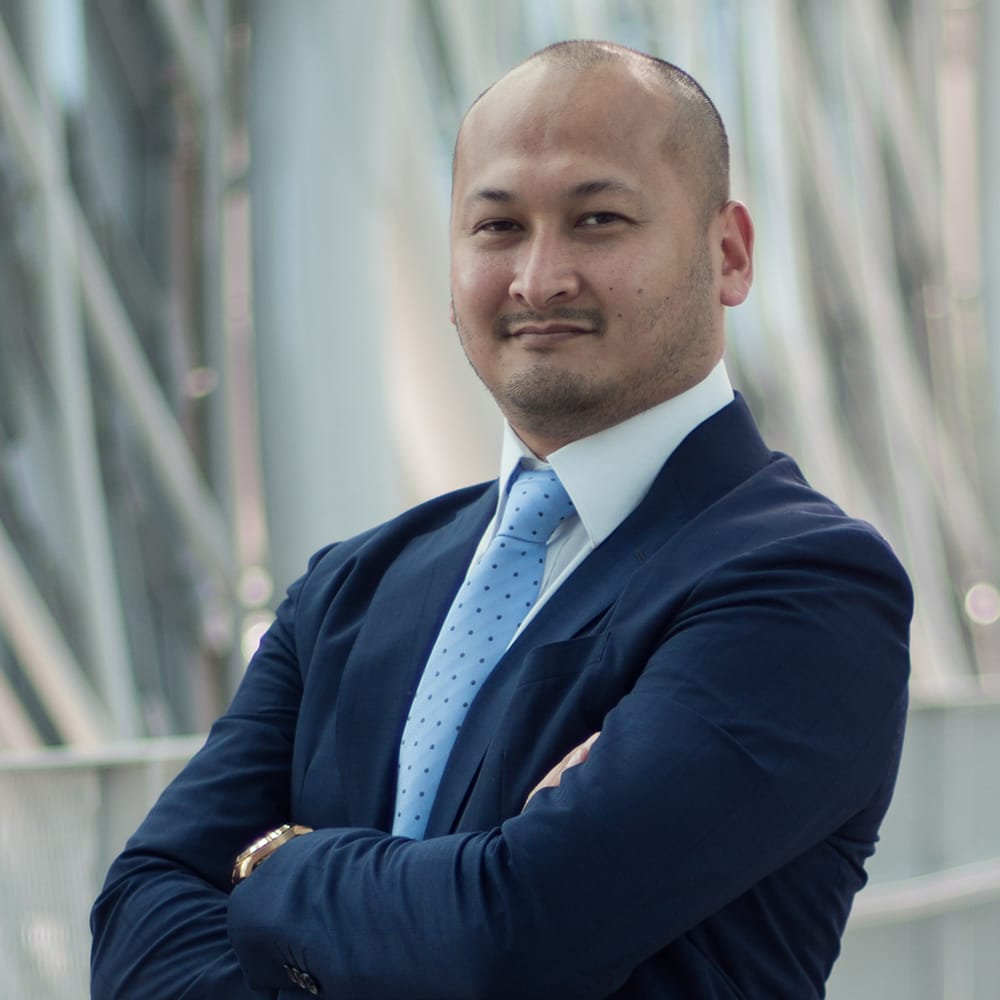ASTANA – The Kazakhstan Institute for Strategic Studies (KazISS) and the Institute of Strategic and International Studies (ISIS) Malaysia, a leading Malaysian think tank, are set to explore areas for cooperation during the Central Asian Security and Cooperation forum on July 13-14.

Alizan Mahadi. Photo credit: ISIS Malaysia.
Alizan Mahadi, ISIS Malaysia Senior Director, believes Kazakhstan and Malaysia have the potential for a strategic partnership due to the countries’ commonalities. He shared his views in an interview with The Astana Times before his visit to Astana.
“ISIS Malaysia was established to undertake research on foreign policy and security as well as domestic defense, contributing towards Malaysian nation-building,” he said.
This includes economics, social policy, as well as sustainability studies beyond defense and security and foreign policy studies. The think tank promotes an exchange of views and opinions at both national and international levels.
“From a regional perspective, the institute has also played a role in fostering coastal regional integration and international cooperation,” he said.
He explained that this is done through forums such as the Asia Pacific Roundtable. “This is our flagship roundtable, which brings together experts from the regions focusing on areas of security and foreign policy,” he added.
ISIS Malaysia is a member of the ASEAN Institutes of Strategic International Studies, a regional think tank network working on issues related to the ASEAN region (Association of Southeast Asian Nations). ISIS Malaysia is also a member of networks such as the Pacific Economic Cooperation Council and the Network of East Asian Think-Tanks partnering with think tanks from ASEAN as well as from other think tanks in East Asia, such as Japan, China and South Korea.
Commenting on the collaboration opportunities with KazISS, he said there is significant potential for this due to the similar functions of the institutes.
“Both think tanks engage quite a lot in government-to-government discussions…there is a lot of potential for joint research and exchange of ideas that would benefit both countries from a strategic and development perspective,” said Mahadi.
He highlighted that the main reason the ISIS Malaysia mission is participating in the Central Asian Security and Cooperation forum is to explore opportunities for collaboration.
“The purpose of the visit is to identify and design potential projects, identify a strategic vision and to share and exchange ideas,” he explained.
In his view, it is vital for countries with commonalities to “physically begin talking to each other” due to the shifts in the geopolitical landscape. “We are both Asian countries and both Muslim countries,” he pointed out.
Mahadi also spoke about the bilateral relations between Malaysia and Kazakhstan.
“Diplomatic relations between Kazakhstan and Malaysia were established in 1992, more than 30 years ago. They were established only three months after Kazakhstan officially declared independence in 1991,” he said.
According to him, the relations started to become more strategic soon after independence.
“For example, our bilateral relations since 2014 have been framed as a comprehensive partnership, upgraded and elevated as a comprehensive partnership, which offers a lot of opportunities to collaborate and partner across various areas, including trade,” he said.
He elaborated that the collaboration focuses on inter-parliamentary cooperation on several issues, including hydrocarbons, trade and economy, science and technical spheres, cultural and human international monetary exchanges, and law enforcement.
The countries also cooperate within the Organization of Islamic Conference, and the World Islamic Economic Forum. “These platforms allow both countries to develop narratives for balanced relations, especially between the Muslim world and the West,” he added.
In his view, the two nations share the same stance on “several pressing international issues, including combating terrorism, drug trafficking, developments to international laws and norms.”
Mahadi commended mutual trade, noting that it reached $100 million last year, witnessing an upward trend. Malaysia exports to Kazakhstan electrical and electronic products, rubber, agricultural products, and agriculture palm oil, while Kazakhstan exports to Malaysia industrial products like chromium oxides and hydroxides.
He highlighted that the Malaysia Kazakhstan Business Council, established in 1996, plays a key role in these bilateral economic relations.
The countries are also developing cooperation in the field of education and science. “For example, this includes the formation of the Kazakhstan innovation joint working group on higher education,” he added.
He also commended the development of tourism between the two countries. “We welcomed 50,000 tourists from Kazakhstan in 2019, while 10,000 tourists from Malaysia visited Kazakhstan,” said Mahadi.
He anticipates that the forum will provide a platform for small and medium powers to start discussing ways to address the geopolitical and geo-economic tensions facing the world.
“I expect that we will start discussions on how to strengthen cooperation between Central Asia and ASEAN, as well as between small and medium powers more broadly,” he said.
The Central Asian Security and Cooperation forum, under the theme Asia in the Changing World: Agenda for the Future, will be held on July 13-14 in Astana. Providing a platform for discussion between prominent thinkers and political scientists from 25 countries, the forum will cover Asia’s global security, the new continental interconnectedness of Eurasia and the Middle Corridor, global competition for innovation, artificial intelligence, human capital, among other important subjects.
